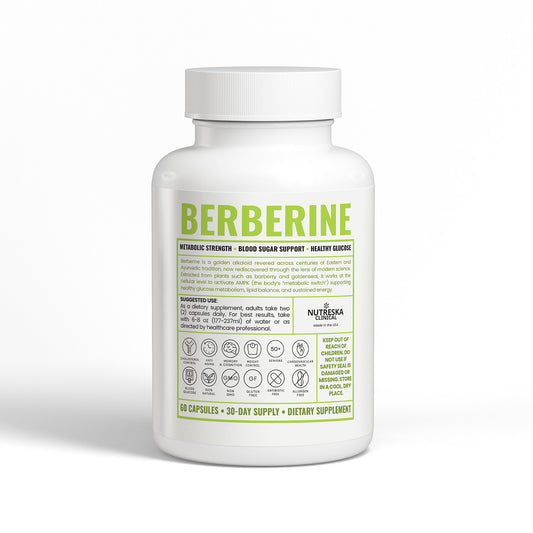Sleep is no longer just a nighttime routine — it's a modern crisis.
If you've ever found yourself scrolling Amazon or pharmacy shelves unsure which bottle to trust, this guide is for you.
Millions of people are turning to supplements in the hope of better rest, deeper REM cycles, and relief from the anxiety that keeps them up at night. But in a world flooded with pills, powders, gummies, and strips, it’s hard to know what actually works?
In this guide, we’re breaking down the science behind sleep supplements, what to look for, what to avoid, and how to choose the right formula for your unique needs.
The Sleep Crisis We're All Living Through
In the age of screens, burnout, and constant notifications, sleep is one of the first things we sacrifice. Studies show that more than 30% of adults in the U.S. experience short-term insomnia, and up to 10% suffer from chronic sleep disorders. The reasons vary — stress, caffeine, blue light, hormonal shifts, overthinking — but the result is the same: we’re tired, foggy, and frustrated.
This has led to a booming market of sleep aids promising to fix our internal chaos. Some work. Some don't. And some can quietly make things worse over time. Knowing what’s in your supplement — and how it affects your body — is critical.
What Are Sleep Supplements, Really?
Sleep supplements typically fall into a few categories:
- Hormonal-based: Most commonly melatonin, a hormone your brain naturally produces when it’s time to wind down
- Herbal-based: Formulas using botanicals like valerian root, chamomile, and passionflower to induce calm
- Nutrient-based: Ingredients like magnesium and B6 that support the body’s natural ability to rest and regulate its rhythms
- Synthetic or blended: Often including antihistamines or “proprietary blends” with unclear dosages
Understanding which category your supplement falls into is the first step toward making a smart decision.
Melatonin: The Star Player with a Dark Side
Melatonin is by far the most recognized sleep aid on the market. Your body already produces it in small amounts — around 0.3 to 1 milligram — to regulate your circadian rhythm. The problem is that most over-the-counter melatonin supplements come in doses ranging from 3mg to 10mg. That’s 3 to 10 times more than what your body actually needs.
When taken in large doses, melatonin doesn’t just make you sleepy. It can disrupt your natural rhythm entirely, suppress your body’s own melatonin production, and leave you groggy or dizzy the next morning. And because it’s a hormone, long-term overuse can mess with other hormonal systems — including mood, appetite, and even reproductive health.
There’s also the issue of tolerance. The more high-dose melatonin you take, the less effective it becomes over time. What started as a gentle aid quickly turns into a crutch.
Low-Dose Melatonin: A Better Path
Recent studies suggest that small doses of melatonin — often under 1mg — are just as effective for sleep, with far fewer side effects. When combined with calming herbs and amino acids, the results can be even better. Instead of knocking you out like a sleeping pill, low-dose formulas help your body return to its natural rhythm without dependency.
At Nutreska, this is our guiding principle. We believe sleep aids should work with your body, not override it. That’s why our products never exceed 1mg of melatonin — and why we combine that gentle base with proven botanical extracts that soothe, relax, and promote real rest.
Herbal Sleep Aids That Actually Work
While melatonin tends to get the spotlight, many people find more consistent and refreshing results from natural herbs and compounds that support calm without acting like a sedative.
Valerian root is one of the oldest herbal sleep aids, often used in traditional medicine for its calming effect on the nervous system. It's especially useful for people whose sleep is interrupted by stress or anxiety.
Chamomile, often found in teas and tinctures, contains a flavonoid called apigenin that binds to receptors in the brain to promote relaxation. It’s gentle, effective, and backed by centuries of use.
GABA is a naturally occurring neurotransmitter that reduces neuronal excitability. In simpler terms, it helps your brain stop overthinking so you can ease into sleep.
Other supportive ingredients include passionflower, magnesium glycinate, and L-theanine — each with its own calming benefit.
What’s important is how these ingredients are combined. A good formula doesn’t just list trendy herbs — it uses synergistic dosages that actually work in the body. Always look for transparent labeling and clinically supported amounts.
What to Avoid in Sleep Supplements
The sleep industry is not tightly regulated, which means many products contain more than just what’s advertised. Some use synthetic fillers, overly high doses of melatonin, or combine multiple sedating agents that may lead to dependence, drowsiness, or side effects the next day.
Watch out for:
- Proprietary blends that don’t disclose actual dosages
- Melatonin levels higher than 3mg (especially in gummies and pills)
- Diphenhydramine (an antihistamine commonly used in “PM” medications) — effective, but habit-forming and not ideal for long-term use
- Synthetic additives or “natural flavors” that aren’t really natural
If you're waking up groggy, dreaming too vividly, or needing to increase your dose over time, your current supplement might be working against you.
Finding the Right Sleep Aid for You
Not all sleep problems are the same — and not all supplements are built to solve them. Some people struggle to fall asleep, others wake up in the middle of the night, and many feel tired but wired with no clear solution.
If you:
- Have trouble winding down at night, a low-dose melatonin strip or calming herbal blend may help cue your system to sleep
- Wake up at 3 a.m. with racing thoughts, consider a formula with GABA or valerian root for sustained relaxation
- Feel generally anxious and restless, look for passionflower, magnesium, or L-theanine for mood and nervous system support
- Want a heavy-duty solution, but only occasionally, a high-strength capsule with 10mg melatonin may be okay when used sparingly (e.g., jet lag, shift work)
It’s also worth considering the form: strips absorb faster, gummies are enjoyable but can hide excessive sugar or dose, and capsules work well for controlled release.
The Nutreska Approach to Sleep Support
At Nutreska Labs, we’ve taken years of science and customer feedback to create a balanced lineup that matches real sleep needs. We didn’t build one-size-fits-all formulas — we built a system that meets people where they are.
Our NIGHTCAP Sleep Strips offer 1mg melatonin combined with calming botanicals in a fast-dissolving format — perfect for those who want something quick, gentle, and non-habit forming.
Our Sweet Dreams Gummies contain 2mg melatonin and natural extracts to support deeper rest in a chewable format — ideal for people who want something tasty but effective.
REM Sleep Support focuses on herbal power with just a touch of melatonin — giving your nervous system everything it needs to relax, reset, and wake up refreshed.
And for more intense cases, our Deep Sleep Formula delivers 10mg melatonin in a clean capsule, backed by natural plant support, for those nights when nothing else works — or when jet lag disrupts your rhythm.
No matter where you are on your sleep journey, there’s a Nutreska option built with purpose, backed by science, and designed to restore balance — not create dependency.
Smarter Sleep Isn’t About More — It’s About Better
In the end, good sleep doesn’t come from force. It comes from rhythm. From calming your mind. From supporting your body’s own ability to rest.
Supplements can help — but only when they’re designed to work with you.
That’s why everything we make at Nutreska is formulated with intention: low melatonin, natural ingredients, real results.
If you’ve tried other sleep aids and felt worse, groggier, or more confused the next day — it’s not you. It’s the product.
And now, you have a better option.
Ready to sleep smarter?






